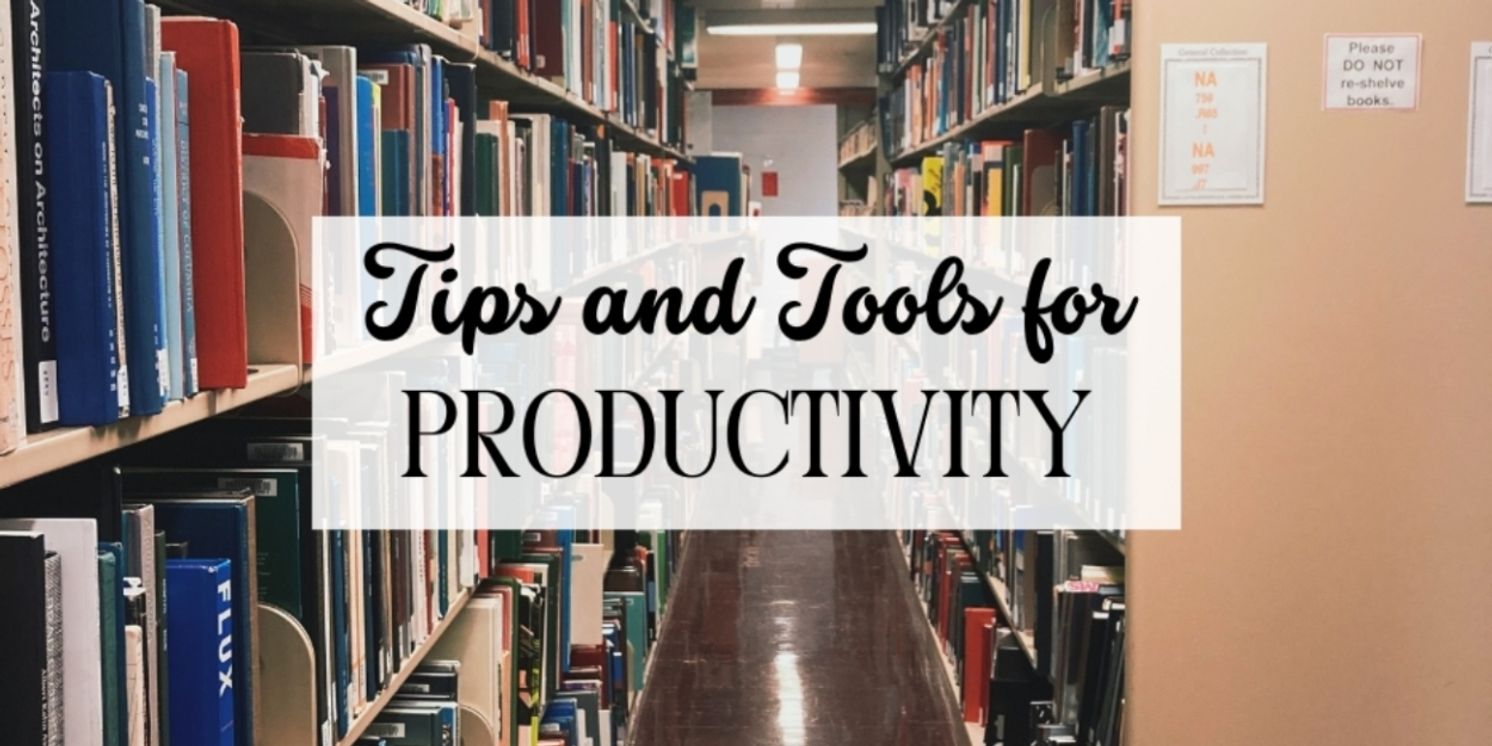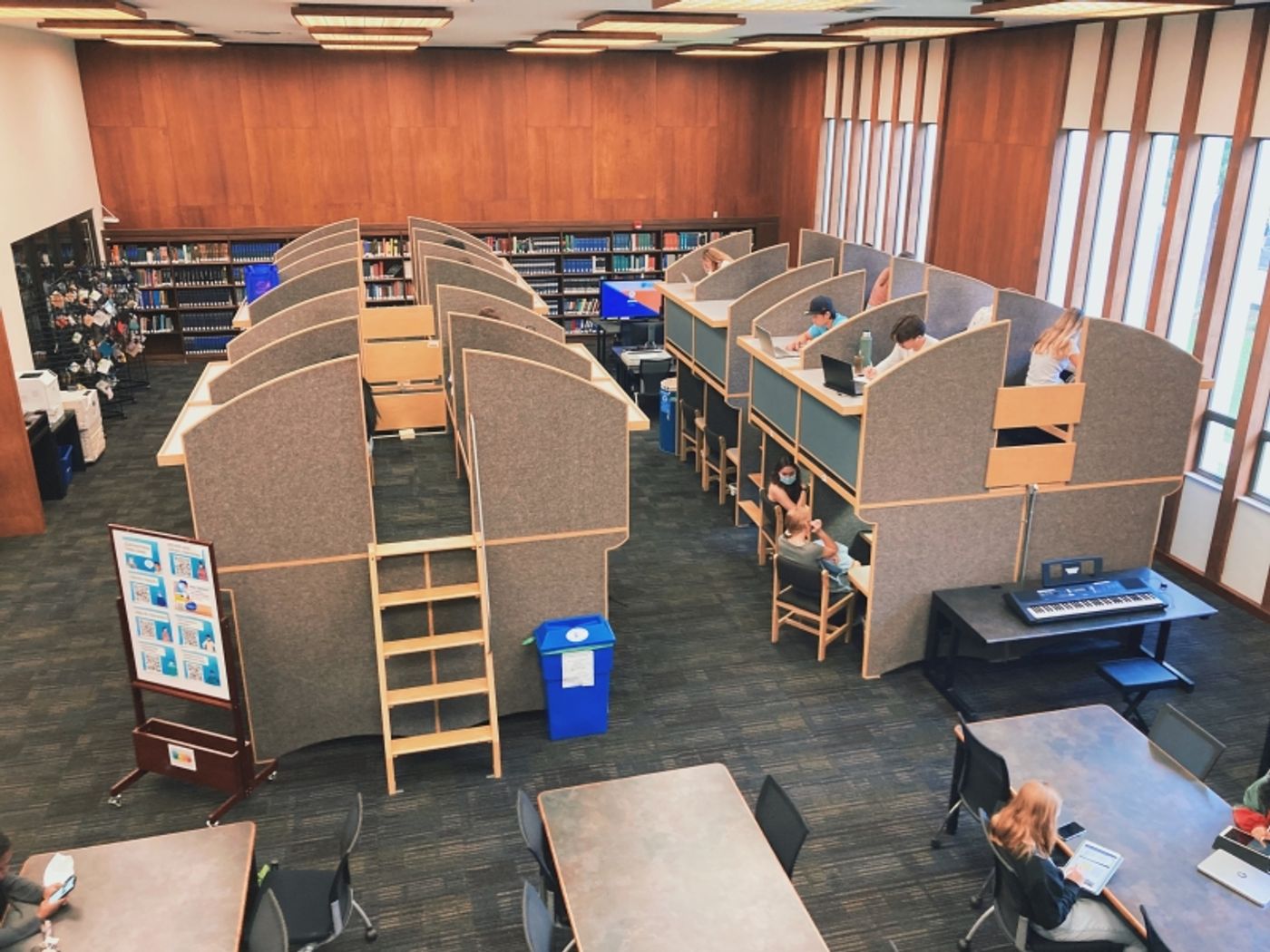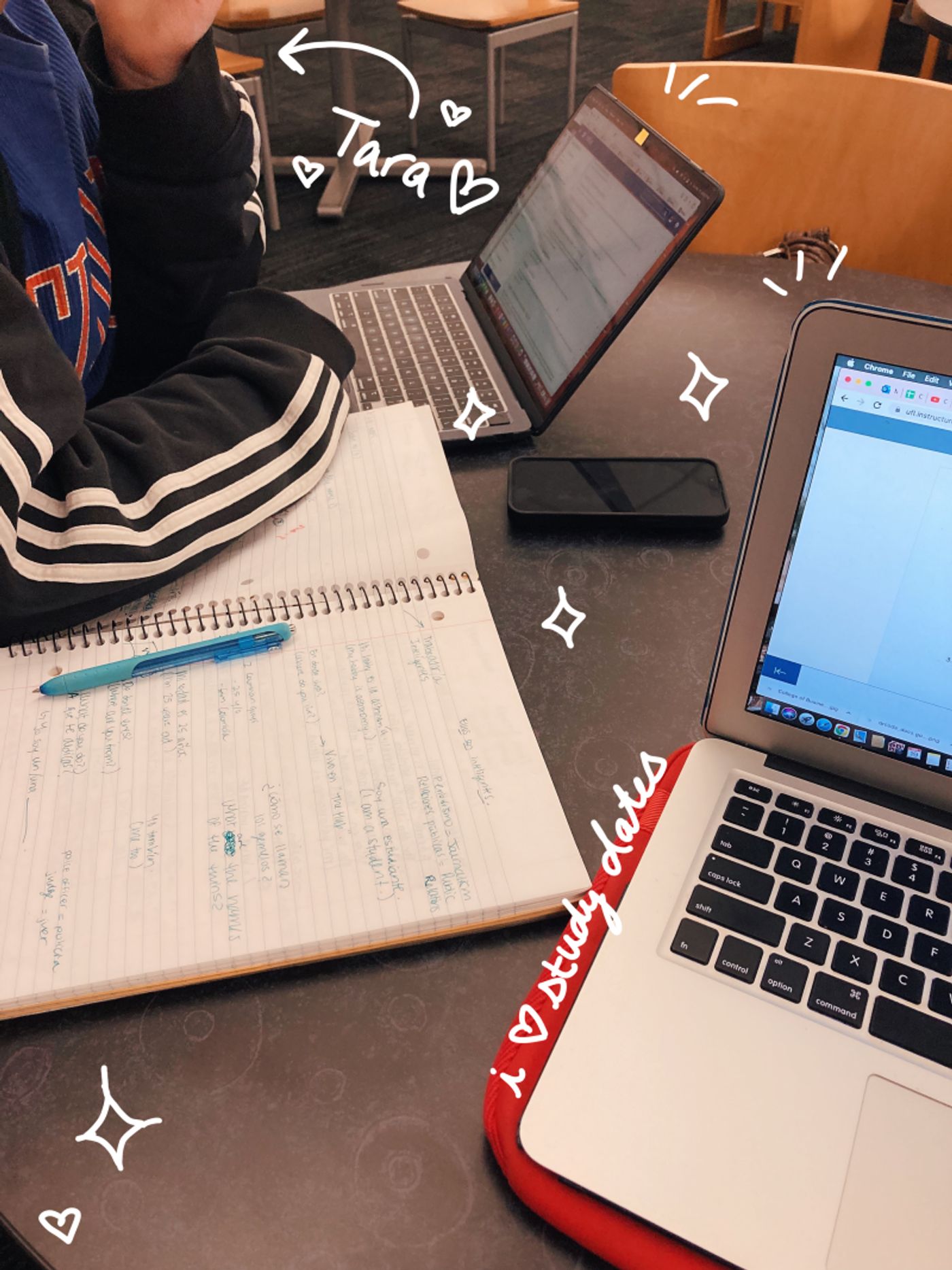Student Blog: Tips and Tools for Productivity
It can be difficult to stay focused and motivated during a busy semester. Hopefully some of these tricks will help you save your grades and your sanity!

For many of us college students out there, spring break has finally arrived (or perhaps just ended)! Personally, I feel like I just ran a marathon and am taking a short breather before jumping right back into another race. Or, to put things in theatre terms, I feel like I just collapsed offstage after performing my heart out in an energetic Act 1 finale, enjoying a brief intermission before heading back on stage for a wild ride of a second act. Whichever analogy you prefer, the point is that I am exhausted, and have miles to go before summer break. However, when I look back at the chaotic first half of the semester, I am proud of myself for managing to balance such a busy schedule full of rehearsals, weekend work shifts, and a heavy course load full of countless class projects. Here are some tips and tools that have helped me get through the year so far!
My first and most important tip: take the time to learn how your brain works and what study habits suit you best! For example, the amount of studying I've done in the past few weeks has really affirmed to me that I work best at night. Because I know that about myself, I'm not going to force myself to follow the study routines of others who get up early and do homework before class, because I know it won't be productive. I know that I am a night owl and embrace it wholeheartedly, studying at the library until it closes and adjusting my sleep schedule accordingly. Even If I'm falling asleep in the evening while trying to read something or complete an assignment, I'm just going to take the initiative and nap, because I know my brain will be more awake and alert later in the night. I've also found that I work best in public spaces, and have made it my goal to make sure all my homework is finished before I come back to my dorm at the end of the day. Your ideal routine might be completely different, favoring early morning study sessions in the comfort of your own room, practices that are equally as valid if they work for you. All of this to say, if you simply take some time to try out different study methods, visit different study spots, and listen to the cues from your brain and body, you will quickly find a personalized routine that you can commit to for success.
Another small tip that relates to some of my previous advice: unless you are an expert at retaining focus, do not attempt to do homework in your bed. You will almost never win. Especially if it's after an evening rehearsal. The urge to just lay down and go to sleep will defeat you nearly every single time. Believe me, I am guilty of this. Even if I don't actually end up going to sleep, I've found that I'm also much more tempted to stop and scroll on my phone when I study in bed, since that's typically where I sit and laze around. Try your hardest to reserve your bed for sleeping and relaxing only, and take your schoolwork anywhere else! Finding cool new places to study that are outside of your dorm can even be a fun adventure, whether that entails visiting all the libraries and finding hidden niches around your college campus, or exploring some of the cute coffee shops and quiet cafes that the surrounding community may have to offer.

in my school's arts library if I hadn't gone hunting for new study spots!
On the subject of staying focused, I've found that listening to upbeat music while I work truly helps me to complete assignments quicker. Recently in my sound design class, we have been studying the phenomenon of entrainment, a neurological process in which oscillatory circuits inside the brain subconsciously sync up with external auditory pulses, prompting an involuntary motor response in time with the music we hear. In other words, we unknowingly match up our actions with the meter of the music we listen to, whether that means tapping our foot to the rhythm or typing at the same tempo. In designing sound for theatre, we can use this phenomenon to manipulate the emotions of the audience; in completing schoolwork, we can use it to manipulate ourselves into typing, reading, and finishing tasks faster. When I'm working on a time crunch, I typically listen to hyper video game tracks (racing games like Mario Kart have great music for this) or upbeat J-pop songs, since both genres are as high-speed as ever and don't have English lyrics to distract me. I realize it sounds ridiculous, but it works! If you are one of the lucky people who can listen to music without getting distracted by the words (a trait I envy), try putting on a motivational mix of your favorite upbeat show tunes next time you have to cram some assignments in a pinch!
My final tool for success is other people! Homework and other tedious tasks become so much easier to complete when worked on in the company of another person. My education major friend recently taught me that this strategy is formally referred to as "body doubling," and is extremely beneficial for those who have ADHD or find themselves easily distracted. If you have a friend in the same class as you, take advantage of that relationship! Meet for coffee and reading, make flashcards together, take field trips to the library, and have chaotic late-night exam review sessions! Going on study dates not only forces you to get work done while someone holds you accountable, but it also allows you to form a stronger friendship with the other person.

I can attest to this personally; thanks to this strategy, I emerged from the fall semester not only with straight A's, but also with an amazing new friend that I might've never gotten as close with if not for our many shared study sessions. Though we don't have any classes together this semester, we still find time to meet up at the library and work together, enjoying each others' company while being productive. Overall, studying with friends is both good for the brain and good for the soul, adding an element of fun into what might have been drudgery.
Here's to surviving and thriving throughout the rest of the school year!
Videos


